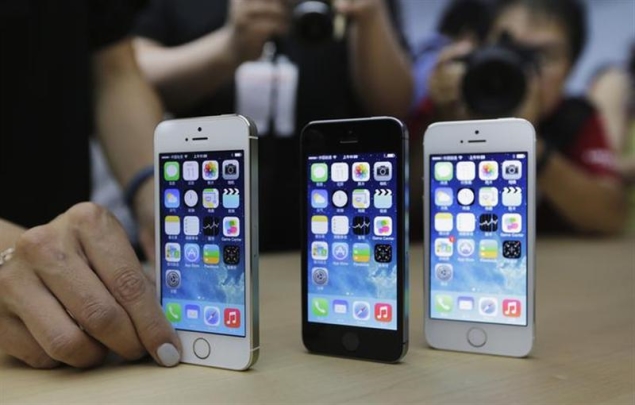- Home
- Mobiles
- Mobiles News
- iPhone, iPad flaw could allow interception of encrypted communications: Apple
iPhone, iPad flaw could allow interception of encrypted communications: Apple

If attackers have access to a user's network, such as by sharing the same unsecured wireless service offered by a restaurant, they could see or alter exchanges between the user and protected sites such as Gmail and Facebook, experts said.
"It's as bad as you could imagine, that's all I can say," said Johns Hopkins University cryptography professor Matthew Green.
Apple did not say when or how it learned about the flaw in the way iOS handles sessions in what are known as secure sockets layer or transport layer security, nor did it say whether the flaw was being exploited.
But a statement on its support website was blunt: The software "failed to validate the authenticity of the connection."
Apple released software patches and an update for the current version of iOS for iPhone 4 and later, 5th-generation iPod touches, and iPad 2 and later.
Without the fix, a hacker could impersonate a protected site and sit in the middle as email or financial data goes between the user and the real site, Green said.
Apple did not reply to requests for comment. The flaw appears to be in the way that well-understood protocols were implemented, an embarrassing lapse for a company of Apple's stature and technical prowess.
The company was recently stung by leaked intelligence documents claiming that authorities had 100 percent success rate in breaking into iPhones.
Friday's announcement suggests that enterprising hackers could have had great success as well if they knew of the flaw.
© Thomson Reuters 2014
For the latest tech news and reviews, follow Gadgets 360 on X, Facebook, WhatsApp, Threads and Google News. For the latest videos on gadgets and tech, subscribe to our YouTube channel. If you want to know everything about top influencers, follow our in-house Who'sThat360 on Instagram and YouTube.
Related Stories
- Samsung Galaxy Unpacked 2025
- ChatGPT
- Redmi Note 14 Pro+
- iPhone 16
- Apple Vision Pro
- Oneplus 12
- OnePlus Nord CE 3 Lite 5G
- iPhone 13
- Xiaomi 14 Pro
- Oppo Find N3
- Tecno Spark Go (2023)
- Realme V30
- Best Phones Under 25000
- Samsung Galaxy S24 Series
- Cryptocurrency
- iQoo 12
- Samsung Galaxy S24 Ultra
- Giottus
- Samsung Galaxy Z Flip 5
- Apple 'Scary Fast'
- Housefull 5
- GoPro Hero 12 Black Review
- Invincible Season 2
- JioGlass
- HD Ready TV
- Laptop Under 50000
- Smartwatch Under 10000
- Latest Mobile Phones
- Compare Phones
- Nubia Z70S Ultra
- Meizu Note 16
- Meizu Note 16 Pro
- Sony Xperia 1 VII
- OnePlus 13s
- Samsung Galaxy S25 Edge
- Vivo Y300 GT
- Samsung Galaxy F56 5G
- Lenovo Legion 9i (18”, 10)
- Alienware 16X Aurora
- OnePlus Pad 2 Pro
- Amazon Kindle Paperwhite (12th Gen)
- boAt Storm Infinity Plus
- Moto Watch Fit
- Xiaomi QLED TV FX Pro (55-inch)
- Xiaomi QLED TV FX Pro
- Asus ROG Ally
- Nintendo Switch Lite
- Toshiba 1.8 Ton 5 Star Inverter Split AC (RAS-24TKCV5G-INZ / RAS-24TACV5G-INZ)
- Toshiba 1.5 Ton 5 Star Inverter Split AC (RAS-18PKCV2G-IN / RAS-18PACV2G-IN)

















